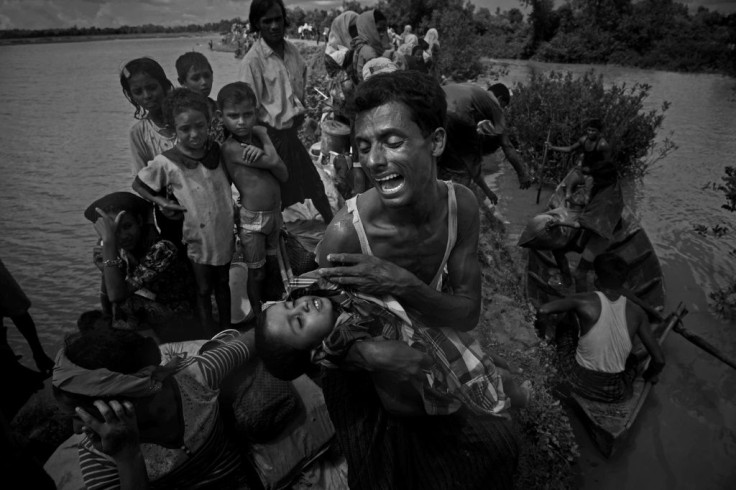International Criminal Court Rules Genocide Against Rohingya In Myanmar

KEY POINTS
- 700,000 Rohingya fled an assault by the Myanmar military in 2017
- The case against Myanmar was brought by Gambia, which accused the country formerly known as Burma of atrocities, including child killings and gang rape
- Thursday's ruling opens the way for possible U.N. sanctions of Myanmar fails to comply
The International Court of Justice at The Hague on Thursday ordered Myanmar to end genocide against its Rohingya Muslim population, opening the way for U.N. sanctions if the country fails to comply.
The court rejected arguments by Aung San Suu Kyi, civilian leader of the country formerly known as Burma and a Nobel laureate, that authorities were responding to an insurgency.
“As Rohingya, we feel vindicated today that the International Court of Justice has effectively established that genocide is the possible name of our persecution,” Nay San Lwin, co-founder of the Free Rohingya Coalition, told the Washington Post. “Justice is partially served. We know that there is a long road ahead [but] this is a great day for the Rohingya.”
The ruling is the first dealing with Myanmar’s treatment of the Rohingya, and though the court itself has no enforcement powers, the decision can be used as a basis for requesting U.N. Security Council action.
“The chances of Aung San Suu Kyi implementing this ruling will be zero unless significant international pressure is applied,” Anna Roberts, executive director of the rights group Burma Campaign U.K., told the New York Times.
“Right now, we can’t say what exactly our next steps will be,” a spokesman for Suu Kyi said of the ruling. “We have to study and learn what the impact of this decision will be on our state, which is a sovereign state.”
“Thus far Myanmar has refused to co-operate with all international efforts to make it comply with the genocide convention,” Kingsley Abbott, head of the Global Accountability Initiative at the International Commission of Jurists, told the Financial Times. “It’s now incumbent on them to comply with the provisional measures set out in the order without delay.”
The court ruled Myanmar, which does not consider the Rohingya as a protected ethnic minority, had “breached and continues to breach its obligations under the genocide convention” and “must ensure that persons committing genocide are punished by a competent tribunal.” The court also ordered reparations and demanded “assurances and guarantees” no more genocidal acts would be committed, either by its military or civilians.
The case against Myanmar was brought by Gambia with the backing of the 57-member Organization of Islamic Cooperation, seeking an injunction to stop “atrocities and genocide against [the] Rohingya people,” including extrajudicial killings, rape, hate speech and the destruction of homes.
The case was spearheaded by Gambian Attorney General Abubacarr Tambadou, who worked with the International Criminal Tribunal for Rwanda’s investigation of the 1994 genocide in that country. The case was brought in November and the court held three days of hearings last month.
Thursday’s decision requires Myanmar to report in four months about the steps it has taken to protect the Rohingya and to preserve any evidence relevant to the genocide case. It also must submit subsequent reports every six months.
More than 700,000 Rohingya fled to Bangladesh in 2017 amid an assault by the Myanmar military, known as the Tatmadaw, that left thousands dead. Survivors described atrocities, including child killings and gang rapes of women and girls. About 500,000 Rohingya remain in Myanmar, about 20% now living in camps.
Myanmar has admitted war crimes were committed but denied genocide occurred.
Suu Kyi, who was a human rights icon and spent years under house arrest for her views, spoke on Myanmar’s behalf during last month’s hearings.
“Genocidal intent cannot be the only hypothesis,” she said without addressing the specific accusations.
In an opinion column in the Financial Times published ahead of the ruling, Suu Kyi pledged soldiers who committed war crimes would be prosecuted through the military justice system.
“It is never easy for armed forces to recognize self-interest in accountability for their members, and then follow through with actual investigations and prosecutions,” she noted.
© Copyright IBTimes 2024. All rights reserved.





















